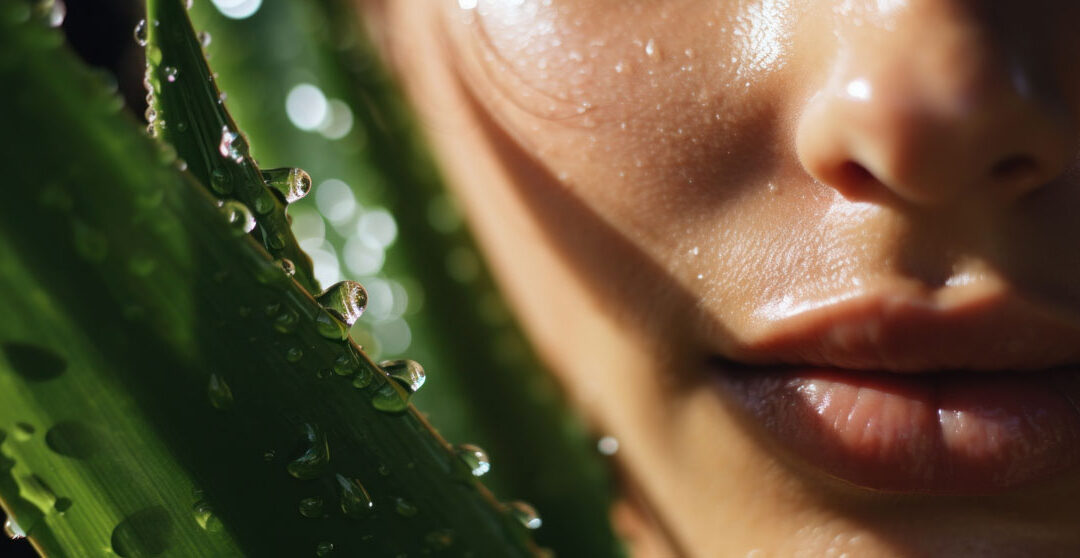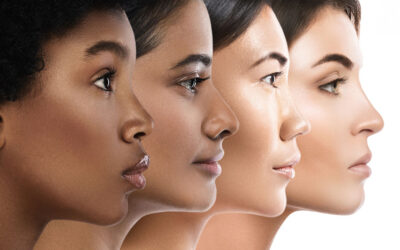Skin moisturizing is more than just something you do to smell good or simply do after showering or bathing; it is downright important for protecting your skin, which is the body’s largest organ and plays a role in your overall health. In fact, there are many benefits of moisturizing skin for your overall appearance and well-being, including:
Helps Heal Your Skin
Your skin is constantly generating new cells to help renew itself from the effects of UV rays, scarring, and more. But to do so effectively, it needs to be constantly replenished with moisture to ensure enough hydration for new cells to grow, which skin moisturizing can help with.
Otherwise, if the skin lacks sufficient hydration, it will result in deficient growth of the cells that produce collagen, elastin, and more, which can hinder you from maintaining healthy skin.
Moisturized skin also helps keep the skin’s protective barrier strong, which helps fight against skin infections and more. It also helps maintain the skin’s pH balance, which helps prevent bacteria and fungi growth.
Helps Smooth and Prevent Wrinkles
Hydrating the skin not only helps keep the outer layer moisturized but also permeates into the inner layer of the epidermis, where it infuses the cells with water, causing them to plump, thus filling in any lines and wrinkles for smooth, supple skin.
On the other hand, dry skin causes your cells to wither and shrink, causing fine lines and wrinkles on your face, hands, and more, which can make you look older than you are.
Therefore, moisturizing should also be a part of your skincare routine to help keep you looking as young as you feel.
Helps Protect the Organs from Environmental Toxins
The skin is constantly exposed to environmental pollutants that can make their way inside its barrier and affect your organs. But when your skin is moisturized, it helps keep your cells full, so there is no room for toxins to infiltrate them, thus preventing harm to your bodily system.
It also helps keep your skin strong to perform its main functions, which are shielding the body from toxins and flushing them out to support a healthy immune system that helps reduce the risk of being harmed by airborne contaminants and more.
Helps Prevent Damaged Skin
Dry skin can become itchy, causing you to scratch it, which can leave rough patches and cracks in your skin that can lead to bleeding and scarring.
Cracks or breaks in the skin also create an opening into the inner epidermis for bacteria and other irritants to get in, which can result in skin infections and an increased risk of allergic skin reactions that can lead to an endless cycle of scratching and skin damage.
However, board-certified dermatologists state that you can help prevent skin damage from dry skin by giving it the moisture it needs to heal and stay resilient.
Keeping your skin moisturized during pregnancy may also help prevent stretch marks as your belly expands to accommodate the growing baby by making it more elastic so it stretches more easily and resists rips in the dermis.
The best way to keep skin hydrated
Now that you understand the importance of moisturizing for healthy skin, here are some expert moisturizing tips for dry skin to help you reap skin hydration benefits daily as part of your skincare routine.
- Apply a moisturizer and lip balm every day – Skin moisturizers work by locking hydration into the skin. Hence, to lock in lots of moisture, apply a lotion, cream, or other type of skin hydrant immediately after washing your body, face, and hands when the skin is wet. Just be sure to choose a product that is specially formulated for your skin, such as if it is oily, dry, super dry, etc., to be sure it provides the level of hydration you need for skin health.
- Drink Lots of Water – The skin uses the body’s fluids to hydrate itself inside and out, so drinking plenty of water throughout the day helps ensure there is plenty of water inside your body to help your skin replenish itself. In general, you should drink at least eight to eleven cups of water daily for healthy skin. However, the right amount of water for each individual will depend on various factors, including their body mass, lifestyle, etc. It is also possible to get water from eating fruits, vegetables, and beverages, such as milk, tea, and juice, that contain lots of water.
- Avoid taking very hot showers and baths – Extremely hot water interferes with the skin cells’ ability to retain moisture, which can dry out your skin. Therefore, stick to lukewarm showers and baths to help retain moisture in your skin.
- Avoid long hours in the sun – The sun’s rays deplete the skin’s natural oils, which can leave it dehydrated and discolored. So try to limit your sun exposure to just 10 minutes a day to help retain your skin’s natural oils.
- Use a humidifier – A humidifier releases water vapors into the air, which helps put moisture back into the skin. So if you live in a dry environment, you may consider also using a humidifier for its hydrated skin benefits.








